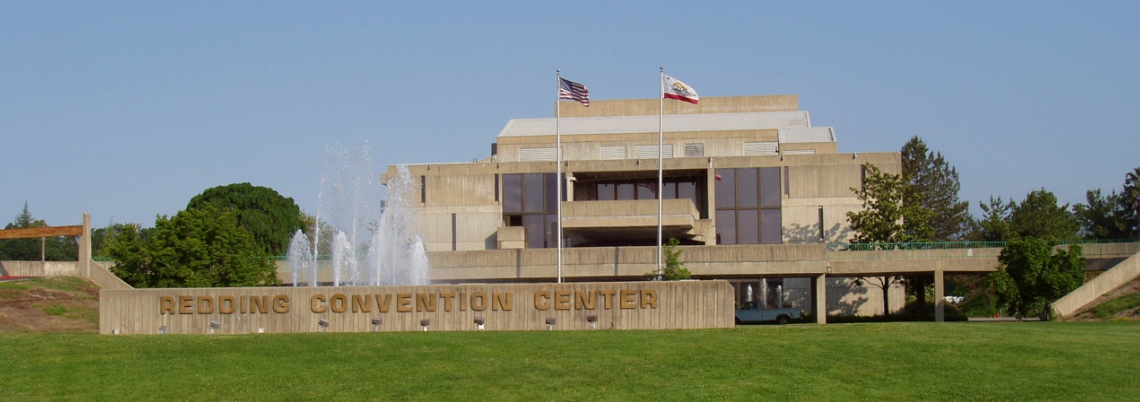Stop and ask yourself this: the last time someone told you a story, what’s the first thing you did with that? Did you take it for face value, or did you ask the person some questions? However you responded, that is probably your natural go-to way of receiving information. How often do we actually stop and think about the information we’re taking in? Maybe you’ve heard this story before, but I think it’s a great illustration for why we need to truly think for ourselves:
A young woman was preparing a pot roast while her friend looked on. She cut off both ends of the roast, prepared it and put it in the pan. “Why do you cut off the ends?” her friend asked. “I don’t know,” she replied, “my mother always did it that way and I learned how to cook it from her.”
Her friend’s question made her curious about her pot roast preparation. During her next visit home, she asked her mother, “How do you cook a pot roast?” Her mother proceeded to explain and added, “You cut off both ends, prepare it and put it in the pot and then in the oven.” “Why do you cut off the ends?” the daughter asked. Baffled, the mother offered, “That’s how my mother did it and I learned it from her!”
Her daughter’s inquiry made the mother think more about the pot roast preparation. When she next visited her mother in the nursing home, she asked, “Mom, how do you cook a pot roast?” The mother slowly answered, thinking between sentences. “Well, you prepare it with spices, cut off both ends and put it in the pot.” The mother asked, “But why do you cut off the ends?” The grandmother’s eyes sparkled as she remembered, “Well, the roasts were always bigger than the pot that we had back then. I had to cut off the ends to fit it into the pot that I owned.”
THINKING PEOPLE ARE SET APART
When we were young, our parents taught us what we should think about the world. This becomes our natural way of responding to the colossal amounts of information that comes our way each day. Our parents have a mandate to teach us right from wrong, how to interpret the things we see and experience. But as we grow up, it’s so important that we learn the art of thinking for ourselves. I’m not talking about the ability to recount facts or tell me something that happened to you yesterday. That’s not thinking. Remembering and thinking are two different things.
So what sets true thinking people apart from the rest? Thinking people ask questions and have an inquisitive spirit. They don’t take things at face value, but they naturally and immediately think: “Why did that happen? Who did it happen to? How can I get that to recur? Can I reproduce that on a larger scale in others? Was that a sovereign act of God, or did the will of man have anything to do with it?” and so on. Thinking people know how to extract from stories the things that aren’t obvious, sifting through the facts, noticing details and pulling out a deeper meaning and the effects thereof.
Why is this important? Because if you can’t think for yourself you’re missing out on some of the greatest empowerment that God has given us; freedom and the truth that we have been given the mind of Christ. When we unconsciously restrict ourselves to the obvious way of thinking that the world operates under, we miss out on true revelation. And in the worst cases, we choose stupidity
and ignorance over innovation. So, do you think for yourself? Truly?
WHY NOT THINK?
Thinking is risky business and some people, whether they realize it or not, don’t want to think. Here are some reasons why:
1. You are afraid to ask questions because you think that your ignorance will be interpreted as stupidity.
Some people believe that if they ask questions, others will think they didn’t believe their story, or that they have no faith. They think that taking things as they are presented is faith. The problem with this is that they never learn how to reproduce testimonies because they have no understanding of why they occur. The truth is that being okay with asking questions shows that you know God as your friend, not your slave master. God loves and invites questions as they’re a gateway to greater connection with Him and understanding of the ways He moves.
2. You are afraid of coming up with a wrong answer or conclusion.
Some people don’t want to be wrong because they equate being wrong with failure. We must realize that every time we get the wrong answer, we have just learned something new. Every wrong answer takes us one step closer to the right answer and even though we may still not know how things work, we’ve at least learned how they don’t work. And progress is worth celebrating along the way to understanding!
3. You don’t like responsibility.
A lot of people don’t want to have to take ownership of things. Coming up with new answers or questions means becoming responsible for the revelation we receive. For example: If I don’t know how someone is doing and I ask them, suddenly I feel responsible for what I know. Thus, in some cases, ignorance is bliss. But are you made to take the easy way out? With greater knowledge comes greater responsibility, but wouldn’t you rather live empowered than in a box closed off to the world around you?
REALLY THINK ABOUT IT
Today I want to challenge you to take an honest self-evaluation of the way you think. Are you a true thinker, or do you have room to grow in this area? If you’ve been living in what you see as blissful ignorance, maybe it’s time to break down the walls that have honestly caged you in. When approaching politics, current events, that big problem at work or obstacles you face in your daily life I encourage you to ask questions, dig deeper, take a story and turn it around in your mind so you can see it from different perspectives. Don’t let any person or culture tell you what to think.
Allow curiosity and Holy Spirit to be your guide into the reality of heaven all around you. Let me know what you’re thinking in the comments below!
THE BLOG
Discover more blog posts

As we approach a new year, many of us feel the stirring of purpose in our hearts, a calling to step into something bigger, bolder, and more impactful than ever before. But here’s a truth we often forget: often the closer you get to your God-given purpose, the louder the opposition becomes. Look at the story of Nehemiah. After years of broken walls and failed attempts, he finally received the favor, resources, and commission to rebuild Jerusalem’s walls. But the moment he stepped into action, the opposition intensified. Critics mocked, threats were made, and fear tried to paralyze him. In the face of opposition Nehemiah pressed on, and in just 52 days, what hadn’t been accomplished in decades was completed. I’d like to point out that opposition is not a sign that you’re on the wrong path. Often, it’s proof that you’re moving in the right direction. As you move into the new year, here are three practical ways that you can respond when the opposition grows louder: 1. Anchor Yourself in Your Identity Opposition often begins by attacking who you are. The serpent challenged Adam and Eve's identity, and Satan even said to Jesus, “If you are the Son of God…” Just as Nehemiah’s critics called him “feeble,” you may face lies that question your abilities, motives, or worth. Practical Step : Write down truths about who you are in Christ, your gifts, victories, and the promises God has spoken over your life. Keep them visible. When fear and doubt arise, remind yourself: you are a child of the King, chosen and equipped for this moment. 2. Stay Focused on the Work It’s easy to get distracted by critics, setbacks, or what others think. Nehemiah refused to “go down into the valley” of distraction or fear. He stayed focused on the wall he was building, not the voices trying to stop him. Paul felt this same pressure when he wrote, “I press on toward the goal to win the prize for which God has called me…” (Philippians 3:14) Practical Step: Create a “daily focus ritual.” Each morning, list the one thing you need to do that day that moves you closer to your purpose. Protect that time fiercely, and let criticism and noise slide off like water from a shield. 3. Recognize Opposition as Confirmation Opposition often signals that you’re stepping into something significant. Elijah faced Jezebel’s threats after his greatest victory, proof that he had truly impacted the kingdom. The louder the opposition, the more important your mission. Practical Step: When opposition rises, pause and ask: What is God confirming through this resistance? What part of my purpose is this proving? Let the resistance strengthen your resolve rather than weaken your faith. The new year is an invitation to step boldly into your calling. There will be voices trying to shake your confidence, doubts that try to paralyze your progress, and fears that want to hold you back. But remember: the louder the opposition, sometimes the closer you are to something God designed uniquely for you. Step forward with courage, focus, and clarity. Rebuild the walls that need rebuilding, stand firm in your identity, and embrace the opposition as a signal that you are on the right path. This year, don’t be surprised when the voices get louder, be encouraged. They are proof that your purpose is real, your mission is significant, and your victory is coming.

Redding Civic Auditorium Bethel Church has had a vision to help create one beautiful city for decades. Then, in late 2010, the Record Searchlight posted an article that the City of Redding was closing the Civic Auditorium due to the current economic crisis. The Civic cost the city 1.9 million dollars in 2010 to operate. Furthermore, the building seriously needed to be refurbished. The Bethel leadership team was deeply concerned about the economic effect the closing of the Civic would have on our already ailing city, not to mention the negative impact it would have on the social dynamic of our community. This ultimately led to a group of leaders forming a Non-religious, Public Benefit, Nonprofit Corporation called Advance Redding to operate the Civic Auditorium in October of 2011. Advance Redding entered into a contract that paid The City of Redding 360k annually in the form of a lease, for the privilege of operating the Civic Auditorium for the community. Advance Redding then entered into a contractual agreement with Bethel Church for $750K a year lease, to facilitate the Bethel School of Ministry, four days a week (Monday thru Thursday). Furthermore, Bethel Church donated nearly 2 million dollars to Advance Redding (AR) to help refurbish the Civic Auditorium. The Bethel Lease allowed AR to operate the Auditorium at break-even for 13 years. Advance Redding also was able to improve the business model, which dramatically increased the number of events facilitated by the Civic each year and greatly improved the entertainment experience. This resulted in millions more dollars of revenue flowing into our city every year! The Bethel School of Ministry no longer needed the Civic after the COVID-19 season, as the growth of the School is happening online. Therefore, BSSM moved out of the Civic in 2023, and didn’t renew its lease. This left Advance Redding with the challenge of operating the Civic without the monies that Bethel was paying in rent. The City graciously lowered the rent to 5k a month to help remedy the situation. But it hasn’t proved to be enough to solve the economic situation as the Civic is now operating at a significant loss. This inspired the Advance Redding board to request that the City release the funds set aside by the sale of land for the Sheraton and from our rents, for the maintenance of the Civic building but never utilized. This, we reasoned, would cover the losses for this year and part of the following year; which would keep the Civic open until a permanent solution could be implemented. The City Council agreed to this stop-gap solution, which we are grateful for. But moving forward, there needs to be a permanent, economic solution put in place to ensure that the Civic remains open and vibrant for the foreseeable future. The Advance Redding Board believes that the only viable option for the long-term solution for the Civic, (and for the economic health of our city), is the citizen-led Initiative for the Measure Adoption of a One Percent Sales Tax. Therefore, we have taken a leadership role in helping to pass the Initiative with our efforts. We also invested $49.5k of our Advance Redding budget to fund the effort to pass the tax, as without the Initiative, the Auditorium has no future! Closing the Civic Auditorium will have a massive negative impact on the economy of Shasta County as the events it facilitates bring millions of dollars into our community every year. It should also be noted that there are virtually no Civic Centers in the nation, that operate without government investment. The Redding Civic Auditorium has been the rare exception; and although the Civic opened 55 years ago, even it has only operated at no cost to the City for 14 years due to the generosity of Bethel Church. Sales Tax Solution The Sales Tax rate in Shasta County is 7.25% and yet the average sales tax in California is 8.85%. Nobody likes higher taxes, but we live in a state that has an extremely high cost of living. Much of this is because of the rising cost of insurance due to the increased amount of wild fires in our state, and the need to facilitate Fire Departments and fire mitigation to prevent another catastrophe in our communities. Furthermore, the rise of fentanyl in our county and increased drug addiction have also increased the need for police protection and crime prevention. This and many other factors have caused the cost of living in a beautiful city like Redding to drastically increase. Although the cost of operating a city has increased exponentially over the last three decades, Redding has not raised the sales tax since 1955. Yet over 61% of California Counties have already increased their sales tax to meet these rising costs. The other counties will likely follow as their communities face the challenge of trying to maintain the quality of life they’ve enjoyed, while having to meet the rising cost of the services that make this possible. The sales tax increase is the least intrusive way to continue to maintain and even improve the quality of life in our community. It raises millions of dollars to meet these costs. Here are some of the benefits Measure A would provide for the City of Redding to sustain the progress we have made over the last several years, specifically: Redding Police: Add 20 more officers (17% increase), which could result in a significant reduction in crime and in response time. Redding Fire: Add new fire station in the Enterprise area, reducing response time in that area from 8.5 minutes to 5 minutes and response times citywide by 1.5 minutes. Updated fire stations across the city. 9 new firefighters and a new battalion chief. Also, $750k more per year in wildfire prevention fuel thinning work. Redding Roads: The ability to take our roads from a quality score of 48 out of 100 to as high as 80. Redding Parks & Recreation: Make major upgrades to South City Park (near the library) and Caldwell Park and the new Panorama Park, which will include a gym and emergency evacuation shelter. Updated Big League Dreams and funding to update the California Soccer Park when fields need to be replaced in 6-7 years. This is a path to sustaining these iconic Redding youth development facilities so that our kids can enjoy healthy development activities rather than get in trouble. Upgraded Riverfront: Create sustainability of the Civic, a driver of $84M in economic impact for our city and upgrades to bring in more and better shows and create better experiences. Sustainability of this Hall of Fame Rodeo with increased events around the year and increased capacity during Rodeo Week. Let’s join hands to make Redding, California one of the most beautiful cities in America to visit, and the healthiest city in the nation to live in!
NEWSLETTER


